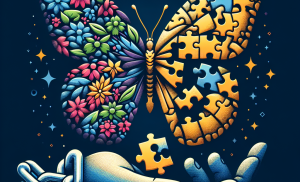From Self-Awareness to Resilience: The Journey Within

In the journey toward emotional resilience, self-awareness serves as the essential cornerstone upon which all other strategies are built. This introspective skill involves not only recognizing your emotions but also understanding the root causes and patterns behind them. Here’s why it’s paramount:
Acknowledging Your Emotions
The first step in self-awareness is acknowledging your emotions, whatever they may be. Whether it’s sadness, anger, fear, or joy, recognizing your emotional state is the key to addressing it effectively. This acknowledgment doesn’t judge or suppress emotions but allows you to confront them head-on.
Identifying Triggers and Patterns
Self-awareness extends beyond the surface of emotions. It dives deep into identifying triggers and recurring patterns in your emotional responses. By understanding what situations or thoughts spark certain feelings, you gain insight into your emotional landscape.
Informed Decision-Making
With heightened self-awareness, you become better equipped to make informed decisions in the face of adversity. Instead of reacting impulsively to challenging situations, you can pause, reflect on your emotions, and choose your response consciously. This can significantly reduce stress and emotional turmoil.
Self-Reflection and Growth
Self-awareness opens the door to self-reflection and personal growth. It encourages you to explore why you feel the way you do and whether those feelings align with your values and goals. This process of self-discovery allows for continuous improvement and emotional resilience development.
Improved Relationships
Enhancing self-awareness positively impacts your relationships with others. By understanding your own emotions and reactions, you can communicate more effectively and empathetically, strengthening your connections with friends, family, and colleagues.
Practical Steps for Cultivating Self-Awareness:
- Regular Journaling: Maintain a journal to record your thoughts and emotions daily. Reviewing your entries can provide insights into your emotional patterns.
- Mindfulness Meditation: Incorporate mindfulness practices into your routine.
- Mindful breathing and body scans can help you stay in tune with your emotions
- Seek Feedback: Ask for honest feedback from trusted friends or family members about your emotional responses and behaviors.
- Professional Support: Consider consulting a therapist or counselor who can guide you in developing self-awareness and emotional intelligence.
In summary, cultivating self-awareness is the foundational step that empowers you to navigate life’s challenges with emotional resilience. By understanding your emotions, triggers, and patterns, you lay the groundwork for a more intentional, mindful, and resilient approach to adversity

















